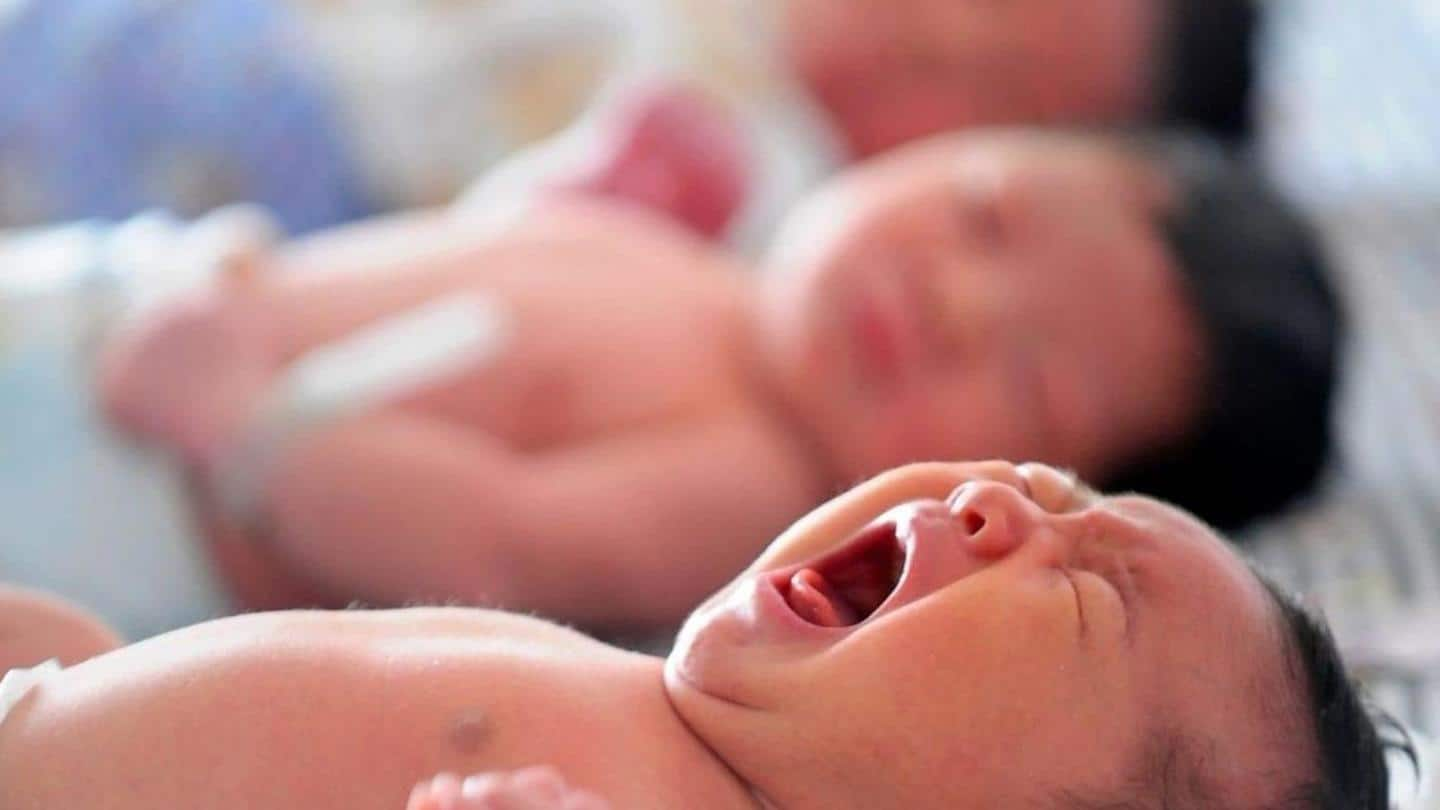
Delhi: Childless for eight years, woman gives birth to quadruplets
What's the story
After being childless for eight years since marriage, a woman has given birth to quadruplets (four babies) via in-vitro fertilization procedure at a private facility in Delhi, hospital authorities said on Saturday. The 32-year-old mother, a homemaker, has given birth to three boys and a girl, a spokesperson of the hospital said, adding that they are all healthy and back at home now.
Struggle
The couple was at the brink of giving up
The Ghaziabad-based couple struggled for eight years before becoming parents. Infertility is often attributed to advanced-age parenthood. However, the couple was at the brink of giving up as they opted for assisted reproductive technologies (ART), like Intrauterine Insemination (IUI) to become parents, but failed due to low ovarian reserve (the number and quality of eggs in the ovary), doctors at the IVF clinic said.
Reason
Woman had already gone through four cycles of IUI: Doctor
The birth took place on July 12 at a unit of Seeds of Innocence, a fertility clinic chain based in south Delhi. Dr. Gauri Agarwal, director and co-founder, Seeds of Innocence, says the woman had already gone through four cycles of IUI by the time she came to the clinic. Upon investigating the reasons, it was found that anti-mullerian hormone (AMH) levels were low.
Information
The low AMH levels indicated low ovarian reserve: Dr. Agarwal
The low AMH levels indicated low ovarian reserve, such women need IVF, she said. "Since the semen sample yielded normal results, we opted for IVF after due counseling to know more about any family history of infertility or addiction, etc," the doctor said.
Details
We retrieved four ovum that yielded three embryos: Dr. Agarwal
"After complete ovarian stimulation, we retrieved four ovum that yielded three embryos, which were transferred. The Indian Council of Medical Research allows transferring of up to three embryos if the quality is not satisfactory," the doctor said. "When we did a transvaginal scan for viability on six weeks, we found three sacs and four heartbeats," she said.
Challenge
The process was challenging on many accounts: Doctors
"Six weeks later, it was confirmed that all three embryos have thrived, and one had further divided to become twins," she said. The process was challenging on many accounts. Maternal risks included gestational diabetes mellitus, pregnancy-induced hypertension, miscarriage, anemia, breathing difficulties, placenta abruption in which the placenta separates prematurely and leads to bleeding, hydramnios (excessive amniotic fluid build-up), and post-partum hemorrhage, doctors said.